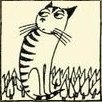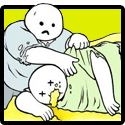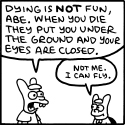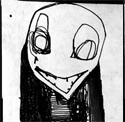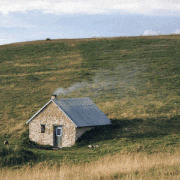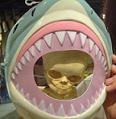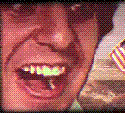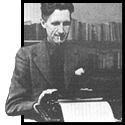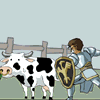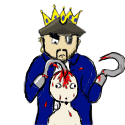|
Just finished Celestial Matters by Richard Garfinkle - set in a Ptolemaic universe with Aristotelian physics, where the Greeks conquered half the world and are now at a stalemate with the Chinese and their incomprehensible Taoist science. Liked this a lot; a bit didactic at the ending but good extrapolation, plot, characters etc (though it's so blatant who the saboteur is that it's a bit embarrassing). Now onto The Jennifer Morgue by Charles Stross. Very happy about this, The Atrocity Archives pretty much ruined me for other Lovecraft-referencers.
|
|
|
|

|
| # ? May 14, 2024 00:41 |
|
Fields of Fire, James Webb One of my favorite Vietnam-era war novels. Webb is a very talented writer, the ~500 page narrative progressed quickly, and I enjoyed his book more than Caputo's ubiquitous high school history novel A Rumor of War. Regardless of your stance on the war, there's a character inside for you. Webb, who has the creditials to reinforce his messege, ends the novel with a resonating dickslap to the face of America's fortunate sons. Great stuff. "I DIDN'T SEE ANY OF YOU IN VIETNAM. I SAW DUDES, MAN. DUDES." A Portrait of the Artist as a Young Man, James Joyce To begin, this was my first experience with Joyce. This is also early Joyce, finalized in 1914, so I assume its style is very different from Ulysees or Finnegans Wake which were published years later. I'll have to pick those up next. The main character, Stephen Daedalus (Joyce), jumps through the same proverbial comming-of-age hoops: love, faith, prositution, etc. While there are a few very beautifully written easter eggs scattered throughout the novel, I wasn't fond of the text until the very end. In the last chapters Stephen begins to rant to his subordinates about his philosophy of art and beauty which smacks of the fat, dreadlocked girl who sat in the back of my college aesthetics class, always eager to share her exegeses during classroom discussion. The very end of the book, however, is written in the form of short journal excerpts and really brings all the ideas and emotions Joyce evoked in the first 170 pages to a climax. I'd liken it to being dragged several hundred miles on a muddy cobblestone street and ending up at a bar with free drinks.
|
|
|
|
I just finished The Android's Dream by John Scalzi, who is admittedly riffing on the title of the famous Phil Dick book. Scalzi touches on a theme of Dick's book, what it means to be human, but past that bears no relation. This book is a flat out comedy. Scalzi has an impishly adolescent sense of humor, particularly evident in the first chapter, but it doesn't really get in the way of the story. And it's a fun story. He seems to be taking the classic stories of SF and updating them with some modern ideas, like a mechanic restoring a classic car and then putting an MP3 player in it. The story involves weird aliens, diplomatic snafus, AIs, a pair of Nike Airs to die for, a religion self-admittedly based on a charlatan and sheep. There's some great plot twists and several laugh out loud moments. It's a popcorn book, but like a good bag of popcorn, leaves you with a buttery warmness when you are done. Also read a couple of sf mags recently - the 25th anniversary issue of Interzone, and the May issue of Fantasy and Science Fiction. Interzone is a beautifully designed magazine with good paper, interesting art, good editorials and reviews, and, at least in this issues' case, mediocre fiction. One story actively made me angry, and the others were not notable, including a story by Alistair Reynolds, who I have previously liked. The story that irritated me was by Hal Duncan, and is a companion piece to a duology of books he has called The Book of All Hours composed of Vellum and Ink. It's clear from reading the story that Duncan really wishes he was born James Joyce. Unfortunately, writing plotless gibberish doesn't automatically infer literary value. At one point prior to reading this mag, I had a copy of Vellum in my hand while in a book store, but put it back, and I thank this issue for giving me the knowledge to avoid Duncan in the future. There was a free download as a bonus for this issue, Journey to the Center of the Earth, which was a fun, lunatic alt-history piece that was better than anything published in the issue. The F&SF issue was very good, with a three very good stories, one good story, and one ambitious story which fell flat for me. The very good stories were The Master Miller's Tale by Ian R MacLeod, which was a melancholy story about technological change leaving whole ways of life outdated, Kaleidosocope by K. D. Wentworth, a light tale about someone's life changing constantly around her, and The Tamarisk Hunter by Paolo Bacigalupi a not unbelievable near-future tale about water-rights in the western US.
|
|
|
|
Joshtafari posted:
Vellum started out as pointless gibberish that always seemed two or three steps from coherent and relevant to the story. After giving up on the book twice for this fact, I finally jumped back in and after a while the rambling narrative jumps began to coalesce into a great tale. This is a book that requires patience and even then is a trial but one that I found satisfying and will one day attempt the sequel.
|
|
|
|
CrimsonGhost posted:Vellum started out as pointless gibberish that always seemed two or three steps from coherent and relevant to the story. After giving up on the book twice for this fact, I finally jumped back in and after a while the rambling narrative jumps began to coalesce into a great tale. This is a book that requires patience and even then is a trial but one that I found satisfying and will one day attempt the sequel. I've tried reading Vellum myself and I gave up on it because of that, but if it does get better later on, I'll have to try it again.
|
|
|
|
I guess my main problem with it was that he was unabashedly mimicing Joycean stylings, even to the point of using Joyce's mashup word 'riverrun' in a passage of the story that was breaking the fourth wall and describing the story being written. If I wanted to read Joyce, I'd finally crack open that copy of 'A Portrait of the Artist...' that I have sitting on my shelf.
|
|
|
|
Joshtafari posted:I guess my main problem with it was that he was unabashedly mimicing Joycean stylings, even to the point of using Joyce's mashup word 'riverrun' in a passage of the story that was breaking the fourth wall and describing the story being written. If I wanted to read Joyce, I'd finally crack open that copy of 'A Portrait of the Artist...' that I have sitting on my shelf. And this is going to make me finally crack open the Joyce I have had on the shelf for the last six months.
|
|
|
|
Well, finished The Road I was surprised on how short of a read it was (took me about 5 hours). I think the lack of chapter separation caused me to read it faster then other books. But it was a very good read, and I enjoyed the story. Joining in as one of the goons who recomends this book. But now I'm once again stuck with out a book to read 
|
|
|
|
wolf_man posted:Well, finished The Road I was surprised on how short of a read it was (took me about 5 hours). I think the lack of chapter separation caused me to read it faster then other books. But it was a very good read, and I enjoyed the story. Joining in as one of the goons who recomends this book. Check out some other McCarthy, like Child of God, Blood Meridian, or Suttree if you really liked the Road. Edit: You may also want to look into Faulkner, as he was influential to McCarthy although he's a bit harder for me to read. YMMV. QVT fucked around with this message at 11:19 on Nov 3, 2007 |
|
|
|
The Algebraist by Iain M Banks. I thought The Wasp Factory was pretty good (great, considering it was his first novel), and Use of Weapons to be one of the better SF stories I've read recently, but Excession and now this have been pretty disappointing. The whole background plot with Taince's revenge against Saluus was really out of place, neither of those characters really played a significant role in the plot aside from that, and their whole inclusion was distracting from the central narrative. It's like Banks can't write a story without ~*main character's past mental trauma*~, and he felt the need to shoehorn it into this one to try and give it more emotional depth or something. The whole AI's aren't really bad guys or extinct, just hiding and waiting for people to stop being so mean! thing also came off as out of place and ultimately superfluous, given that he really didn't spend that much time talking about the AIs before and they weren't extremely integral to the plot anyways. I feel like Banks could have done a lot better with this book if he either cut distracting stuff out or made it fit into the plot better, and had fleshed out Fassin Taak and the alieness of the Dwellers more. He did a good job of writing the hosed-up, twisted stuff for Luciferous, but something more interesting than a 2-dimensional "this guy is evil" villain would have been nice. He sort of did that with the Beyonders, but again, didn't really flesh that out or explain it as much as he should have. It's not like the world-building in China Mieville's stuff where he'll drop references to all kind of interesting-sounding stuff (that aren't explained in much detail) and leave you salivating for more, it's more like the author is just throwing things in to a story that don't need to be there which either distract you or muddy up the central plot without really adding anything. So overall, I thought it was more or less an OK book, but had a lot more potential.
|
|
|
|
The Boy Who Followed Ripley (1980) By Patricia Highsmith - Before I write about this book, here's an interesting quote about the author that I dug up from The New York times: No flashy or fashionable effects are allowed to interrupt the flow of a Highsmith narrative, which often appears to be eventful even when nothing is happening. The Boy Who Followed Ripley is a book where nothing really happens. Okay, maybe that's a bit of hyperbole. When compared to the first three books in the Ripley series, though, the actions are few and the tension is absent. In this respect, the book is a little disappointing; it almost feels like Patricia Highsmith is falling in love with her own character so much that she doesn't want to make things too hard for him; and, aside from a few bits of action, this is a relatively easy adventure for Ripley. Most of the book is a travelogue of sorts that follows Ripley and a young male companion as they visit different sites in Europe. The boy, a multimillionaire heir who flees America after impulsively killing his father (not a spoiler), seeks out Ripley in France and becomes a sort of protege to him. Ripley isn't trying to turn him into a killer; he's more of a morality coach for someone who actually has a conscience (which can also be seen in Ripley's Game). Though the book can be dull at times, Ripley's attachment to the boy is a startling, but not artificial, change in his character, which borders on gay but never quite enters that territory -- except for one ludicrous scene where Ripley lures some criminals into a gay bar (after dressing completely in drag) so he can follow them back to their hideout; if you think about his plan, he could have lured them to any location for his plan to work. It was a brief bit of insanity by Highsmith. The last 40 pages of The Boy Who Followed Ripley contain a surprising and story-changing event that Highsmith barely gets to explore, as it happens halfway through the dénouement. It was a little disappointing that we didn't get to investigate more of Ripley's internal thoughts after this event, and it was a major misstep for it to happen so late in the book. This is just one of a few problems which makes this Highsmith tale seem far sloppier and unplanned in comparison to her other works. I think I'm going to take a break before I read the last novel in the series, Ripley Under Water.
|
|
|
|
I've been mainly working on a score of classic literature about Satan for a class(Paradise Lost, Faust, and such), but I just finished Lucky Jim on the side. My old high school English teacher recommended it to me at some point, and it was honestly a really funny book that I liked much more than I expected to. Now I'm off to read some Cormac McCarthy for the first time when I get a chance to pick one up.
|
|
|
|
wolf_man posted:Well, finished The Road I was surprised on how short of a read it was (took me about 5 hours). I think the lack of chapter separation caused me to read it faster then other books. But it was a very good read, and I enjoyed the story. Joining in as one of the goons who recomends this book. I also just finished The Road the other night. I thoroughly, thoroughly enjoyed this book. And I'm not too shamed to admit that it made me choke up and swell with happiness on more than one occasion, something that rarely happens for me. Highly recommended. It's been optioned for a 2009 film, I think it would be a great film. Question: Are all of McCarthy's works in the same style? The near-stream-of-consciousness style, the lack of quotation or apostrophes in general, or is that exclusive to the barren wasteland of The Road? Moving on to Choke. After that, probably House of Leaves, or I'll try to go back to The Terror and finish that.
|
|
|
|
World War Z by Max Brooks I was really surprised by how in depth this was. I suppose this is a little unwarranted that is, considering how well done the Zombie Survival Guide was. I started the book thinking it was just going to be a script of Dawn of the Dead or something of the like. But Max went above and beyond that and really created a believable story. Awesome zombie story.
|
|
|
|
The Temple of Gold by William Goldman. I'm a big fan of the Catcher in the Rye and I had heard from several sources that this book was fairly similar and even better. I have to say that I was pretty dissapointed as I dont think this book even comes close to the Catcher. It was a bit easier to read but some it came off as amature writing. His execution of the theme was much much weaker too. It was enjoyable but I wasn't really impressed with anything.
Golden War fucked around with this message at 04:22 on Nov 5, 2007 |
|
|
|
Kurt Vonnegut - Timequake. It was just what you'd expect from Vonnegut though without an actual story. Despite being labeled as fiction it basically is just him stating his views on the world. I mostly enjoyed it, though it occasionally lost my attention which was strange as I generally can't put down his books.
|
|
|
|
perceptual_set posted:World War Z by Max Brooks I just bought that. I'm wondering if I shouldn't read The Zombie Survival Guide first?
|
|
|
|
LooseChanj posted:I just bought that. I'm wondering if I shouldn't read The Zombie Survival Guide first? I did but it isn't at all necessary! The Guide, I think, is mainly a conversational piece that is fun, but not exactly easy to get through unless you like reading survivalist guides. It's really in depth and if indeed there ever was an attack of this nature (ha!) everything you need to know is in there. However the two books only touch on each other in the sense that a couple of characters mention the survival guide but nothing specific about it. Not reading the guide first wont diminish your enjoyment (or lack of) of the story. I hope you enjoy both of them!
|
|
|
|
RobertKerans posted:
Finished with a couple books last week, Borges' Collected Fictions for the second time this year. An incredible read (especially the books from the 40's-60's), but at the same time very daunting to me as someone attempting to become a writer. Think you've got an amazing new idea for a short story? Yeah, it's already been done, probably by Borges, and with incredible skill and imagination. Also finished a slow crawl through Rooms For Rent in the Outer Planets, a best-of from Canadian poet Al Purdy. I still don't know what I think of his poetry as a whole, he's got incredible oratory skills (ex: "At the Quinte Hotel" http://www.youtube.com/watch?v=vPKeczB3wrg ), but the "drink-fight-working class 'ero" thing can wear thin.
|
|
|
|
swampland posted:Kurt Vonnegut - Timequake. It was just what you'd expect from Vonnegut though without an actual story. Despite being labeled as fiction it basically is just him stating his views on the world. I mostly enjoyed it, though it occasionally lost my attention which was strange as I generally can't put down his books. I find this really odd because for some reason this book had a very profound effect on me. I think I had a tear running down one cheek. Everything just came to a wonderful ending with the bit about awareness and it just seemed so perfect to me. I was quite young when I read it so I might give it another bash sometime soon.
|
|
|
|
Just finished the entire Enders Game series of books (The Bean side and the Ender side). I love the characters so much now that it's all over I feel like I just had a friend die. Loved the thing from first to last book.
|
|
|
|
Just finished reading Norwegian Wood by H. Murakami a couple of days ago. It was a pleasure reading it and I just gave my copy to a close friend. The story was touching and unpredictable, one of the author's best works.
|
|
|
|
idhindsight posted:I also just finished The Road the other night. I thoroughly, thoroughly enjoyed this book. And I'm not too shamed to admit that it made me choke up and swell with happiness on more than one occasion, something that rarely happens for me. Since you all seem to like the road, I started reading it yesterday and I finished it today. It was a good book, sobering, and I couldn't put it down.
|
|
|
|
Decided to turn my brain off and do some reading and ended up finishing the newest Scarpetta novel by Cornwell, Book of the Dead. I usually enjoy a nice serial killer/mystery and the Scarpetta novels were good for a decent stretch. This book, however, was not one of the good ones. I am getting the feeling that Cornwell is getting sick of her psuedo based on herself character. She has introduced new levels of drama between her returning characters and by the end has basically gotten rid of two of them. If you enjoyed the others in this long running series this may be the book to finally make you stop reading them. A solid bleh. To add to the misery, my wife bought me the newest Clive Barker book, Mister B. Gone. It has the interesting premise of being not just a book, but a demon trapped in the pages of said book. The demon wants you, the reader to destroy the book so he can escape and in turn tells you the tale of his life in an effort to bribe you into burning the tome. At a short 248 pages it felt approximately 150 pages too long. The actual story wasn't horrible and had a few good parts but the far too long stretches of the demon talking to the reader started dragging half way in and got worse as the book went on. This was one to be skipped with no question. Thank god I have Expiration Date by the criminally under-rated Tim Powers open next to me to remove the bitter taste of trashy fiction. I cannot believe what an awesome writer Tim Powers is, I have yet to read anything he has written that I didn't think was great excluding the rather rushed ending to The Anubis Gate, but that can be forgiven.
|
|
|
|
Pop. 1280 (1964) By Jim Thompson - To give away too much of Pop. 1280's story would be a crime, so the best way to describe the book would be "if Kurt Vonnegut wrote a western." A clerk at the local used bookstore recommended Thompson to me because of my interest in other pulp authors like Cain, Chandler, and Hammett; I walked away from Pop. 1280 with respect for a new writer that I plan on following. Thompson's writing takes on the sinister tone of his fellow pulp writers, but he places more of an emphasis on humor and experimental techniques than what's typically seen in the genre. This can be seen with the main character, Sheriff Nick Corey: at first, he seems like a harmless, dense, coward of a man. But as the novel progresses, the reader slowly learns that he is far different than he presents himself. Giving away more of the plot would ruin the book, so I'll finish up my description of Pop. 1280 by saying that it's a darkly funny (almost nihilistic) and surprising story that -- for me at least -- overcame its setting (I'm personally not a fan of Westerns). Like I said before, I'm adding Jim Thompson to the list of authors I need to read more of.
|
|
|
|
Slapstick - Kurt Vonnegut I have no idea why he graded this novel as a D. I thought it was a wonderful and hilarious story. It's also one of the fastest books I've read. Even while going to work and classes, going to the gym and doing homework, I managed to finish 274 pages in 24 hours. But then again it may be Vonnegut's sparse writing style too. There's something about how he writes stories where something can be ridiculously stupid but still the reader goes along with it and ends up loving the story because of it. I may have liked this more than Cat's Cradle but I'm not sure yet.
|
|
|
|
bobservo posted:Pop. 1280 (1964) By Jim Thompson
|
|
|
|
inktvis posted:There's quite a good film made of that, Coup de Torchon, albiet one transposed to the French colonies in Africa. I enjoyed it for the same reasons you seemed to like the book so it seems like a safe enough bet for a night in. A couple of great leads in it at any rate. Thanks for the suggestion; I added it to my NetFlix.
|
|
|
|
Captain Satire posted:I find this really odd because for some reason this book had a very profound effect on me. I think I had a tear running down one cheek. Everything just came to a wonderful ending with the bit about awareness and it just seemed so perfect to me. I think the main reason I viewed it as being sort of just another Vonnegut book is because I'd previously read Wompeters, Foma & Granfaloons (A collection of interviews and essays) and many of the things he said in Timequake seemed to be just restating or slightly expanding on things he had said directly in that or subtly in other books. I did enjoy Timequake but I'm a huge Vonnegut nerd and I suppose I just expected more. swampland fucked around with this message at 10:10 on Nov 7, 2007 |
|
|
|
Hyperion and Fall of Hyperion by Dan Simmons. Interesting plot with a few major and fairly unexpected turns, and very literately done. It seems a lot of sci-fi writers prefer to write so far into the future that nothing from "Old Earth" remains, but Simmons drops in plenty of allusions to things the reader is (or might be) familiar with, which I think engenders more of a feeling of connection to the events in the story. ("New Bushido", "the Muir", and a clone/reincarnation of John Keats that plays a central role in the story, for example) Hyperion itself is the name of an uncompleted epic poem of Keats', and the narrative is sort of a sci-fi adaptation of the Cantebury Tales where different characters take turns telling their stories on a pilgrimage. One minor thing I take issue with is the abrupt ending of the first book. As a collection of short stories it would certainly stand alone on its own merit, but everything was a buildup to the end of the pilgrimage which didn't even happen in the first book. Even though Fall picks up where the first book left off (and was released quite soon after), it was kind of annoying to read a book that turned out not to have a real ending The part in Fall where the Core AI is laying things out for the Keats incarnation is probably one of the best passages I've read (sci-fi or otherwise), it's dropping these complete plot-wrenching revelations while alluding to several famous Zen koans (as well as a few other elements of Buddhism), a Ralph Waldo Emerson quote, an event in colonial American history, quantum mechanics, Greek mythology, John Milton, and probably other stuff I didn't catch, all the while in what might be blank verse (I'm not sure, can't remember much of the poetry stuff that was crammed down my throat in high school) That passage, and the several excerpts from Keats (as well as those from Silenus's fictional Cantos) have awakened an interest in checking out some poetry in the near future. Like a lot of people have mentioned in the "Books you should/shouldn't go back to" thread, I think that the well-intentioned desire of schools to expose teens to literature (or other forms of art) winds up mostly turning them away from it, because they're just not really equiped to appreciate it yet. Both books seem to make issue with globalization, using a somewhat understated/unexplored philosophical argument. There's some other philosophical/theological underpinnings to the plot that seemed like the author might be reaching a little too far, but I'd need to give it another read through to to form a more coherent opinion. There's also a somewhat prescient look at the rise of an internet-like thing (they were published in 1989/90), though it seems to draw a lot from William Gibson in that it's a 3-dimensional space :-\ 1995's Hackers, anyone? All in all, the two were a really satisfying read and I'll probably go after Endymion and Rise of Endymion in the future. I've heard some difference of opinion as to whether or not Simmons drops the ball with the sequels (and the same about the sequel to Illium, both of which are in my "to read" stack) but I'm interested enough to see how the galaxy-shattering changes precipitated at the end of Fall play out. Next up is either Wind-Up Bird Chronicles by Haruki Murakami, King Rat by James Clavell, John Brunner's Stand on Zanzibar, or maybe giving Iain M Banks a last shot before I throw all of the not-yet-read books of his I bought on Half.com in frustration.
|
|
|
|
Just finished the "Runestaff" series by Micheal Moorcock, my first experience with said writer. I found the characters a bit tedious at times (especially the main character), and the plot so-so, but god drat can Moorcock create an interesting world. Certainly not the equivalent of China Mieville in that department, but still worth a read if nothing better pops up. I've decided to finally getting around to reading some Steven Kings books; I read the Stand when I was 14 or 15 and found it pretty good, although that was 7 years ago, and my tastes have changed a bit. I've picked up Desperation from the local library, seeing as Salem's Lot, It, and the first Dark Tower book wasn't in. So far I'm on the fence about it; certainly a bit creepy at times, but the characters don't really grab me in any way. I'm quite interested in finding out more about the cop and the town itself though. Also currently reading the complete Conan chronicles. In a few words : by Crom these stories are awesome! Pompous, I'd highly recommend The Wasp Factory by Iain Banks. Adversary fucked around with this message at 14:58 on Nov 9, 2007 |
|
|
|
Read If Chins Could Kill (Bruce Campbell's autobiography) over the past weekend. It's a pretty fun read, though it seems like he skims over a lot of stuff that probably would have been fun to read about (working on Army of Darkness, etc.) I also read Stamping Butterflies by Jon Courtenay Grimwood over the past week. I'm on the fence with this one - it has moments of brilliance but Grimwood never really ties the 3 main storylines together and it feels like there's huge gaps in what he's telling you, so it ends up a bit muddled. An ambitious book to be sure, but it doesn't quite reach the heights it strives for.
|
|
|
|
Just finished Interview With The Vampire by Anne Rice, and I wasn't that impressed. Started off well enough and held my interest, but once they 'kill' Lestat and head to Europe, it just got boring. I'm told that some of the other vampire chronicles books are better, but on this evidence, I'm in no rush to try them.
|
|
|
|
Encryptic posted:Read If Chins Could Kill (Bruce Campbell's autobiography) over the past weekend. It's a pretty fun read, though it seems like he skims over a lot of stuff that probably would have been fun to read about (working on Army of Darkness, etc.) I was disappointed by that one as well(Stamping Butterflies). You need to read 9Tail Fox to get that taste out of your mouth.
|
|
|
|
bobservo posted:Pop. 1280 (1964) Like I said before, I'm adding Jim Thompson to the list of authors I need to read more of. Agreed, this is one of the best books I've ever read. I'm told The Killer Inside Me and After Dark My Sweet are also top notch. No Country for Old Men by Cormac MacCarthy. Terrific tale set in the Texas borderlands with an old sheriff, a terrifying killer, and a hunter who comes across that killer's satchel of loot. The author's voice is even more enthralling here than in The Road, and his subtle excoriations of modern society and how it sacrifices its young men are just one gripping facet of this story. No one has said so much with so few words since Hemingway, but MacCarthy's poetic use of it keeps from ever being compared with Papa. The ending is the only thing that can happen; it is disappointing, but getting there is very rewarding. I can't wait to see the movie, but I'm wondering how they'll tell it. I recommend this book very highly. I put down The Green Flag: A History of Irish Nationalism by Robert Kee because it is too wordy and dry; can someone recommend a good history of Ireland, not just The Troubles, but including it? I'm in the middle of Les Miserables and I'm loving it; I paused to read MacCarthy so I could read it before seeing the movie. Les Miserables is very wordy as well, but Hugo has a way with words, so the incessant tangents and asides are usually very interesting.
|
|
|
|
Recent finishes: Trainspotting by Irvine Welsh. I hadn't seen the movie when I bought it, but I'd heard it was good. It took me awhile to get through due to varying reasons that had nothing to do with the book, but I liked it quite a bit. I watched the movie after I got done with it and was glad I read the book first; even though the movie was excellent and wrapped it up nicely, they left quite a bit out. The dialect wasn't as hard to penetrate as I'd heard it would be. Moise and the World of Reason by Tennessee Williams. While it had a meandering, idle plot, the characterizations were fantastic and I really enjoyed it. It was a quick read and a good one, though the ending got a little disjointed for me, though it's more about the characters than any overarching plot. The Marriage of Sticks by Jonathan Carroll. This one actually surprised me. I picked it up on a whim at a used bookstore for cheap, and I had no idea what it would really even be about, but it was good. I liked the twist at the end, though I felt like he was trying way too hard to be profound. Next up I'm moving along to something a little different and reading The Stand by Stephen King, and after that I think I'll give the Malazan Book of the Fallen series a try.
|
|
|
|
Recently finished House of Leaves which I enjoyed and found creepifying, but I should have read this ten years ago when I had more brainpower, time, and interest in exploring all the connections and clues. I could have done with fewer footnotes by Johnny Truant - I wanted to say, "Yes, we all know you're a sex machine, give it a rest." In my true "last on the bandwagon" fashion I've now started George R. R. Martin's A Game of Thrones and am hooked.
|
|
|
|
CrimsonGhost posted:I was disappointed by that one as well(Stamping Butterflies). You need to read 9Tail Fox to get that taste out of your mouth. Yeah, unfortunately the local libraries only have the Arabesk books and Stamping Butterflies so I'll spring for a copy of 9Tail Fox at some point - I dig Grimwood's style even though SB wasn't nearly as good as Arabesk. I figured you'd chime in when I mentioned that I read SB.  Kerafyrm posted:The Marriage of Sticks by Jonathan Carroll. This one actually surprised me. I picked it up on a whim at a used bookstore for cheap, and I had no idea what it would really even be about, but it was good. I liked the twist at the end, though I felt like he was trying way too hard to be profound. You just reminded me that I need to read more of Carroll's stuff - he's a fantastic writer who I haven't read nearly enough of. I ripped through Philip K. Dick's The Man In The High Castle today - excellent book and I can see why it's a classic. I haven't read anything by Dick before (just got interested in him after I saw A Scanner Darkly recently) but I'll definitely be looking for more of his stuff. In the meantime, I'm well into (pure coincidence here as far as the title and subject matter goes) The Castle In The Forest - Norman Mailer's novelized depiction of Hitler's life. I was surprised to hear he had passed away today, just shortly after I started reading the book. Encryptic fucked around with this message at 08:30 on Nov 11, 2007 |
|
|
|
Adversary posted:Pompous, I'd highly recommend The Wasp Factory by Iain Banks. That was the second book of his I read, after "Use of Weapons", both of which I liked. But the more recent two books of Banks' I've read have been fairly disappointing. Although I've heard the most praise for Player of Games out of his Culture series, I still have Inversions and Look to Windward on my shelf, and I can't really justify spending anything more on an author I'm about to dump when I've already got some of his stuff around to read. Just finished King Rat by James Clavell. It was pretty good, though not as good as Shogun or Tai-Pan. Rather unexpectedly, it focused more on the cultural differences between the American and English (and to a lesser extent Aussie) POWs in the camp rather than the difference between the Allied prisoners and their Japanese captors, or the indigenous Malay culture (though it did spend a little bit of time on each). Clavell definitely knew what he was talking about it, the book is a fictionalized account of some of his experiences at the notorious Changi Prison in Singapore during WW2. As before, I'll definitely be on the lookout for more of his stuff in the future.
|
|
|
|

|
| # ? May 14, 2024 00:41 |
|
I think I've recommended it twice before in this thread but definitely have a look for Noble House by James Clavell. It continues the timeline of Tai-Pan and is set in the very hip Hong Kong 1960s.
|
|
|



